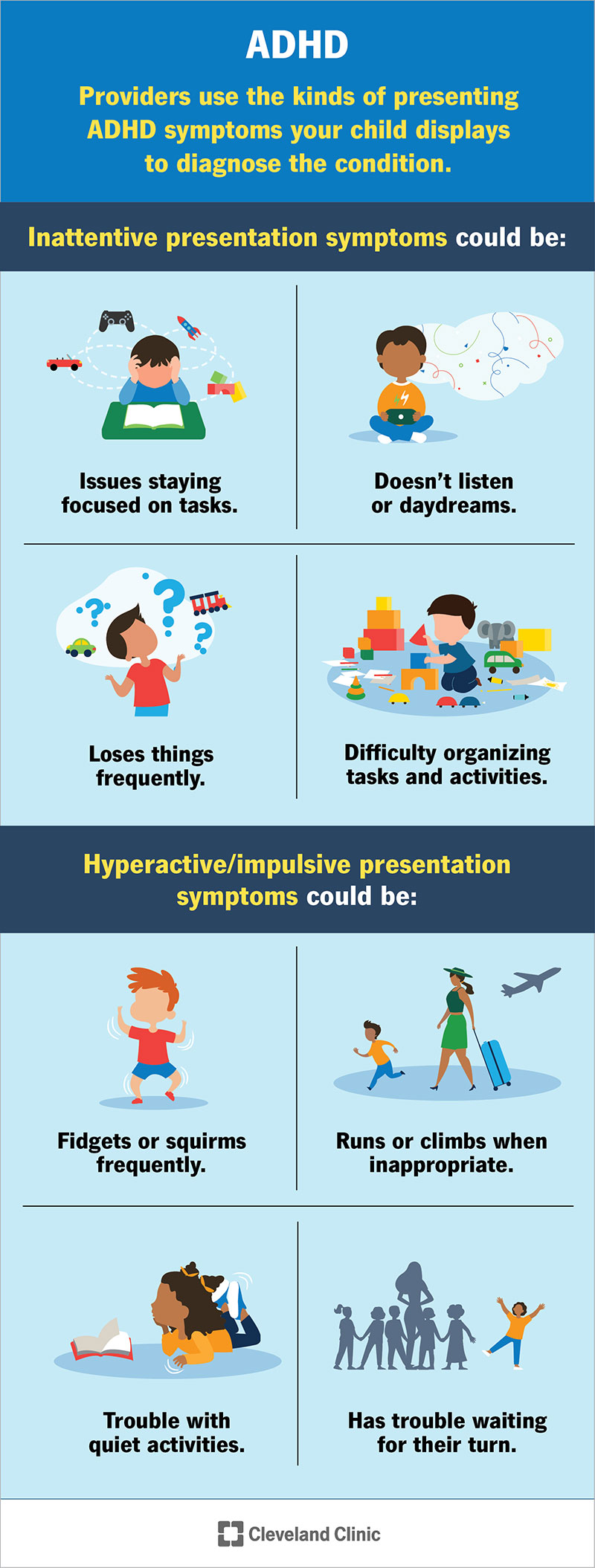Depression Doctor Experienced Effective Treatment
Depression Doctor Experienced Effective Treatment
Blog Article
Exploring Efficient ADHD Therapy Alternatives for All Ages
The complexities of Attention deficit disorder (ADHD) existing distinct obstacles across various age, requiring a comprehensive exploration of efficient therapy options. A mix of behavior modifications, medicinal treatments, and lifestyle alterations has revealed promise in attending to the varied needs of people with ADHD. Nevertheless, the efficiency of these methods can vary dramatically based on personal scenarios, raising critical concerns concerning customized strategies. As we check out the spectrum of treatment modalities available, it becomes necessary to take into consideration not just their instant influences yet also their long-term implications for individuals and households.
Understanding ADHD and Its Impact
Attention-Deficit/Hyperactivity Disorder (ADHD) is a neurodevelopmental problem characterized by relentless patterns of negligence, hyperactivity, and impulsivity that can substantially affect various facets of a person's life. It generally manifests in childhood years, although signs can persist right into their adult years. The core symptoms of ADHD can interfere with instructional efficiency, impede social interactions, and make complex work undertakings.
Individuals with ADHD commonly deal with maintaining emphasis on tasks, arranging activities, and following up on instructions, which can cause academic underachievement (Depression Treatment). In social contexts, impulsivity might result in troubles in forming and maintaining connections, as individuals may disrupt conversations or make rash decisions without thinking about consequences
The variability in symptom presentation means that ADHD can affect people differently, necessitating a customized method to management. Comprehensive awareness of ADHD's nature and ramifications lays the foundation for checking out appropriate treatment options customized to each person's requirements.
Behavioral Therapies for ADHD
Many behavior treatments have been developed to efficiently address the obstacles related to ADHD, concentrating on customizing particular behaviors and cultivating essential abilities. Among the most identified strategies are cognitive-behavioral treatment (CBT), parent training, and social abilities training.
CBT aids individuals recognize and alter negative idea patterns and actions, advertising a more favorable expectation and enhanced self-regulation. This therapy frequently includes functional techniques for managing impulsivity and boosting organization. Moms and dad training programs empower caregivers by outfitting them with methods to reinforce favorable behaviors and established consistent limits, which can be specifically valuable for kids with ADHD.
Social skills training is one more important part, teaching people with ADHD how to connect successfully with peers - Depression Treatment. This approach commonly involves role-playing and responses to improve interaction, collaboration, and conflict resolution skills
Including these behavior modifications right into a comprehensive treatment strategy can considerably boost functioning and high quality of life for people with ADHD. Eventually, the efficiency of these treatments depends on customized strategies that think about the one-of-a-kind requirements of each person, consequently cultivating strength and versatility in life.
Medication Options Available
For numerous individuals with ADHD, medicine can play a substantial duty in managing signs and improving total performance. The two main groups of drugs suggested for ADHD are stimulants and non-stimulants.
Stimulants, such as methylphenidate and amphetamine-based medications, are the most commonly used treatments. These drugs work by increasing the levels of natural chemicals, specifically dopamine and norepinephrine, in the mind, which aids enhance attention and minimize impulsivity and attention deficit disorder. They often yield quick outcomes, making them a recommended alternative for lots of clients.

It is necessary for medical care providers to conduct a comprehensive analysis to establish one of the most appropriate medication based on individual needs, case history, and prospective side effects. Regular follow-up and monitoring are also essential to guarantee the efficiency of the picked therapy and to make any kind of essential changes.
Way Of Living Modifications to Think About
Handling ADHD efficiently expands past drug, as way of life modifications can considerably enhance overall health and symptom control. Including organized regimens is vital; constant routines help people with ADHD handle their time efficiently and reduce sensations of bewilder.
Regular exercise is an additional essential component. Exercise not only aids to enhance concentration yet likewise increases state of mind and minimizes tension levels. Tasks such as yoga or group sports can be particularly beneficial, advertising both physical fitness and social interaction.
Nutrition likewise plays a critical duty. Depression Treatment. A well balanced diet abundant in omega-3 fatty acids, entire grains, and lean healthy proteins can contribute to boosted focus and cognitive feature. Restricting sugar and refined foods is a good idea, as these can intensify hyperactivity and impulsivity
Sleep health is essential for handling ADHD signs and symptoms. christians and depression Establishing a routine rest schedule and creating a relaxing setting can enhance rest top quality, resulting in much better focus and emotional guideline.
Alternative and Holistic Methods
Different and all natural approaches to ADHD treatment provide a diverse series of options that complement conventional approaches. These techniques often concentrate on way of living adjustments, nutritional treatments, and restorative methods that aim to boost total health while addressing ADHD signs.

Mindfulness and behavior treatments are also obtaining traction as alternative treatments. Practices such as yoga, meditation, and cognitive-behavioral therapy can cultivate self-regulation and improve attention. These methods support emotional durability, which is especially beneficial for individuals with ADHD.
Organic supplements, such as ginkgo biloba and ginseng, are occasionally explored; nevertheless, it is vital to consult healthcare professionals before incorporating these into treatment plans. While choice and all natural approaches can provide important support, they should ideally be used together with evidence-based treatments to accomplish optimal results for managing ADHD across all ages.
Conclusion
In summary, reliable ADHD therapy necessitates a comprehensive method that includes behavioral therapies, drug, way of living alterations, and alternative approaches. Customized treatments can substantially improve individuals' functioning and lifestyle, while appropriate drug makes sure optimal sign management. Additionally, adopting organized routines, engaging in normal physical activity, and practicing mindfulness can boost emotional regulation and focus. This multifaceted approach underscores the importance of individualized care in resolving the diverse demands of individuals with ADHD throughout any age teams.
Report this page